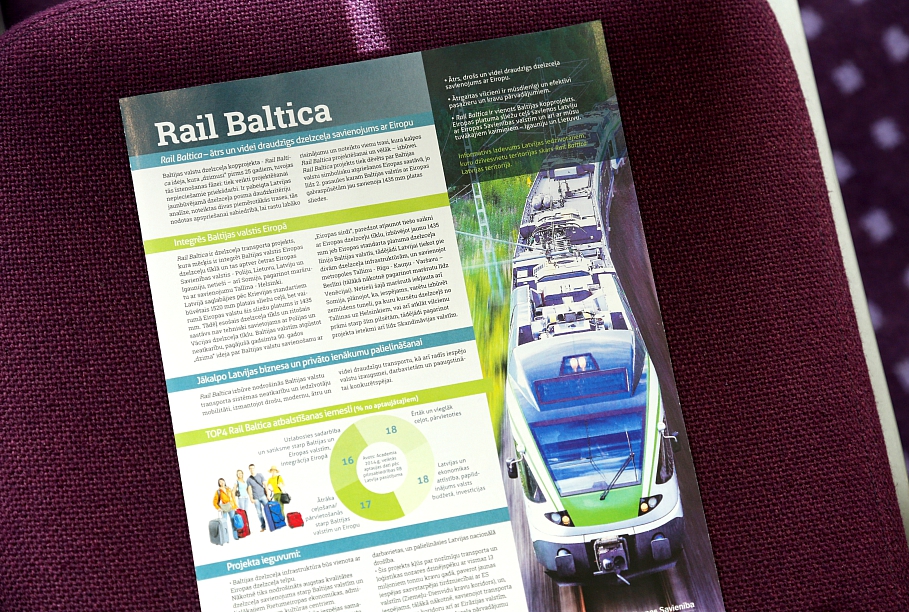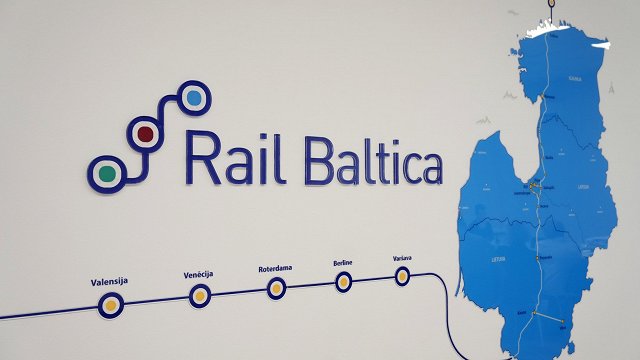The Baltic states will divide procurement for Rail Baltica into three groups.
Some contracts will be organized by the joint venture only, some will see consolidated procurement carried out by the joint venture, and lastly some contracts will be carried out by national companies under supervision of the joint venture, reported LETA.
RB Rail will be the central manager of public procurement in the areas related to the joint project standards, marketing and business research, and so on.
The supervisory council at the meeting agreed to sign an agreement on the Model for Rail Baltica project financing and implementation project by September 30.
The parties also agreed upon starting a tender for professional board members in the Baltics in a month.
Latvia's Transport Ministry said that the meeting amounted to a turning point in cooperation among the Baltic states to continue work on the project.
Previously LTV's De Facto reported that with the project falling behind schedule and many major decisions about contracts still to be made, the whole project could collapse if a frustrated EU withdraws funding.
The disagreement concerned rules of making contracts for things like station and terminal designs and construction, which are now likely to be awarded to local companies in each country.
Rail Baltica envisages a continuous rail link from Tallinn (Estonia) to Warsaw (Poland), going via Riga (Latvia) and Kaunas (Lithuania). The Baltic route should be completed by 2025; the link to Warsaw-2030.
By 2020, the three Baltic states will receive a total of €442.2 million for the Rail Baltica project, with the total cost of the project at €5bn. Of the total cost, 85% of will come from the EU and 15% from the member states involved.





























